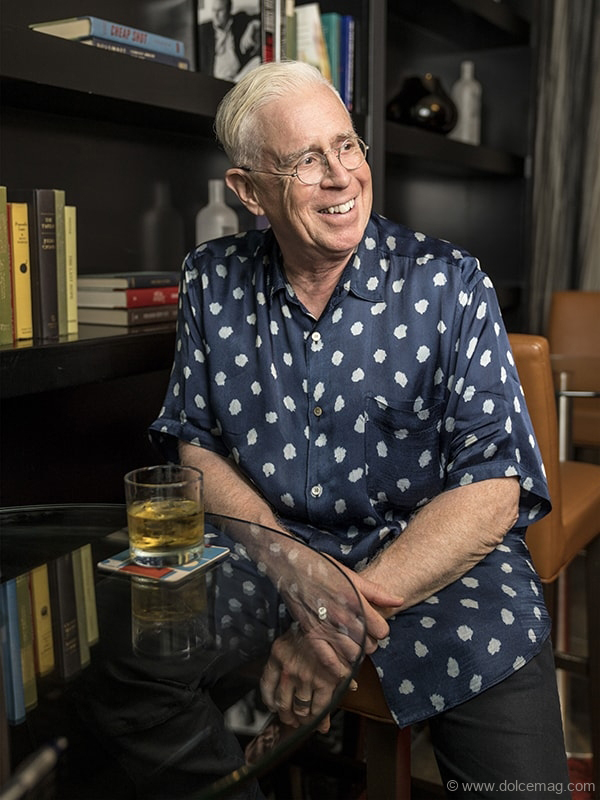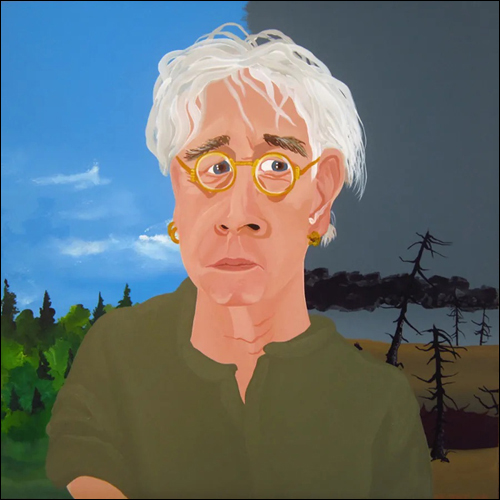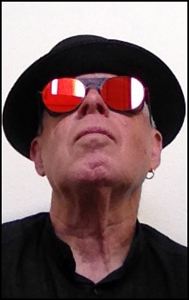11 October 2019 –
Musician Bruce Cockburn has been a singer and songwriter of poetic lyrics and bon mots for more than five decades.
In Conversation:
There are times when being a part of history, albeit a tumultuously famous (some might even say infamous) one, becomes a badge of honour, the tipping point from which many other seismic life events are launched. Toronto’s Yorkville scene in the mid-to-late 1960s and early 1970s was such a place. Although today’s well-heeled visitors to the area might not be able to fathom it, Yorkville in those earlier days was comparable, on a smaller scale, to New York’s bumping Greenwich Village. The hub of a creative, nonconformist, bohemian, longhaired subculture, Yorkville’s hippie scene was entrenched in a tie-dye plethora of folk, rock and jazz music, suede and leather-fringed jackets, a surfeit of free love and, oh yes, a lot of marijuana smoking, which five decades later would become legal — a fact that no one would have imagined at the time.

One of Yorkville’s greatest contributions to music aficionados was the exceptional quality of musicians who got their start in the 40-plus coffee houses and bars that dotted the streets of the Yorkville scene, which encompassed Hazelton Avenue, Cumberland Street, Avenue Road and Bay Street. The famed Penny Farthing coffee house attracted big-name talent such as James Taylor, and Simon & Garfunkel. And the renowned Riverboat Coffee House, where stars such as Joni Mitchell, Gordon Lightfoot and Neil Young played, is also where Ottawa native Bruce Cockburn — folk singer, songwriter, author and multiple Juno awardee — often played. On the big stage, the singer shared a concert bill with a who’s-who of musical proficiency, including The Jimi Hendrix Experience and Cream. With his ever-present round-rimmed spectacles, and his long, dark hair curling out from underneath a fedora trimmed with leather strips, Cockburn’s gentle, commanding voice and poetic lyrics captivated audiences. They knew all the words to his wildly popular, songs-for-the-decades hits, such as “Wondering Where the Lions Are” (1979), “Rumours of Glory” (1980), “The Trouble with Normal” (1983), “If I Had a Rocket Launcher” (1984), “Lovers in a Dangerous Time” (1984) and “Call It Democracy” (1986), to name just a few.
A man whose words shone like beacons in his lyrics, Cockburn’s ability to interact with others throughout his younger years was one that was fraught with angst and rage. “I was wrapped up in myself — not in a narcissistic way, but in terms of mistrust of the world. I was not open to other people,” Cockburn says. “A lot of my adult life has been a big learning curve in terms of empathizing and loving people. In the process of navigating through life, I have learned things — sometimes quickly, and sometimes as an uneven trickle. Every time there has been a discovery, there has likely been a song. We all have a lot in common throughout our lives, including scars. None of us gets out of our childhood/youth without some damage. The scars unite us; if we find those scars in a person and are open to the energy they offer from that place, then it is a binding agent. We are all in this together.”








